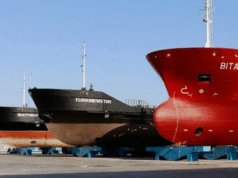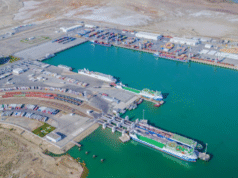The 83rd session of the International Maritime Organization’s (IMO) Marine Environment Protection Committee (MEPC) has concluded with the adoption of landmark measures aimed at reducing greenhouse gas (GHG) emissions from the global shipping sector.
For the first time, the maritime industry is set to operate under mandatory global emissions reduction targets. While this marks a significant milestone, the measures agreed upon fall short of the full ambitions outlined in the IMO’s revised GHG Strategy, raising concerns that the sector may miss its net-zero targets by 2050.
Key Components of the Agreement
The new regulations are structured around two central components, designed to take effect in 2027:
GHG Fuel Standard (GFS):
From 2028 onward, ships will be required to use marine fuels with progressively lower GHG intensity. The measure will adopt a “well-to-wake” approach, accounting for emissions across the entire fuel lifecycle for each unit of energy used.
Global Economic Measure:
Ships that exceed the GHG intensity thresholds will be required to purchase “remedial units” through the IMO Net-Zero Fund. The fund aims to:
Reward low-emission ships;
Support research and technological development in developing countries;
Mitigate climate impacts on vulnerable states;
Fund training, capacity building, and technology transfer in line with the IMO’s GHG Strategy.
The mid-term measures agreed at MEPC 83 will be put forward for adoption at an extraordinary MEPC session in October 2025, allowing for their implementation to begin in 2027.
Industry Reaction and Outlook
Despite being hailed as a breakthrough for maritime climate regulation, many industry stakeholders argue that the measures lack the ambition needed to meet the IMO’s own decarbonisation goals. Analysts warn that without additional policy enhancements or faster implementation, the shipping sector may fall short of achieving net-zero emissions by the mid-century target.
The MEPC 83 outcomes underscore both the progress made and the urgent need for stronger, more immediate action to align global shipping with broader climate objectives.







